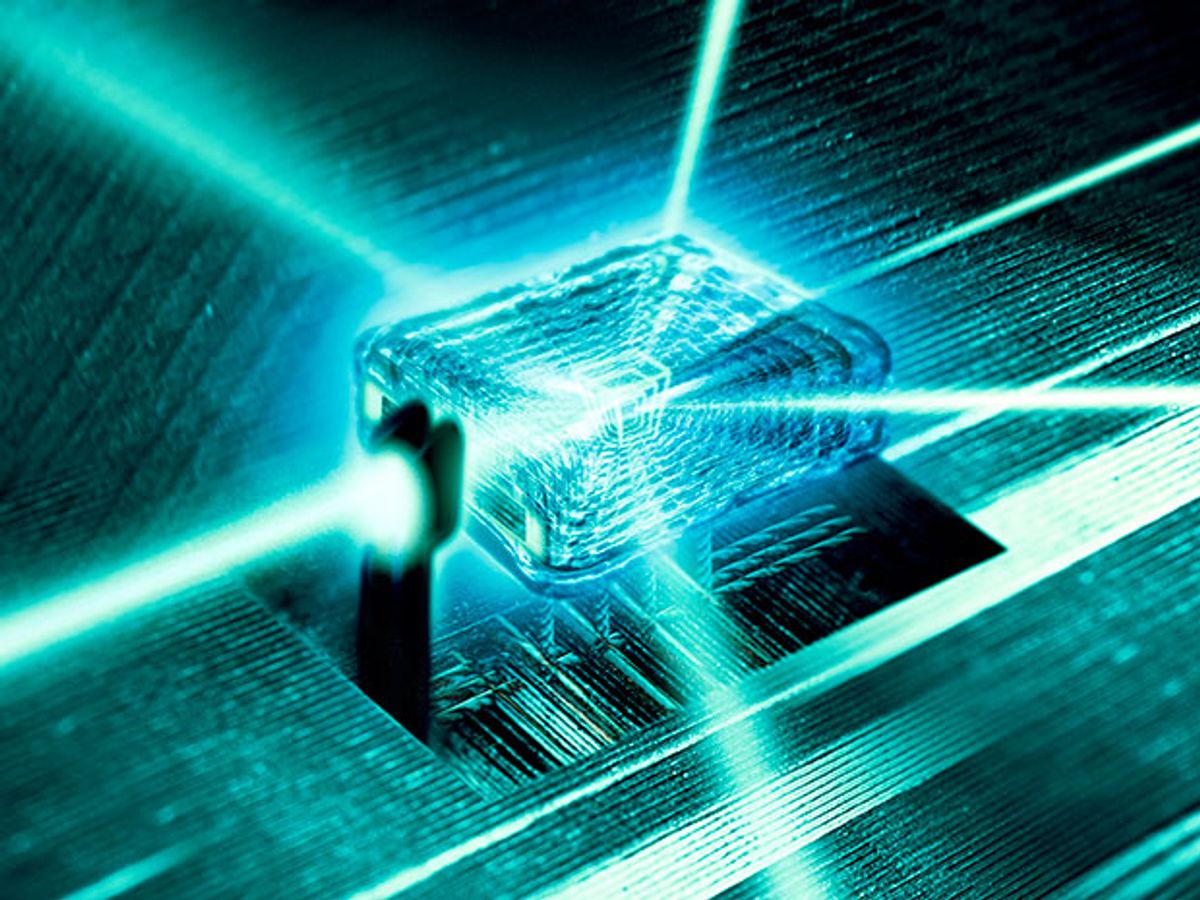Machine learning, the field of AI that allows Alexa and Siri to parse what you say and self-driving cars to safely drive down a city street, could benefit from quantum computer-derived speedups, say researchers. And if a technology incubator program in Toronto, Canada has its way, there may even be quantum machine learning startup companies launching in a few years too.
Research in this hybrid field today concentrates on either using nascent quantum computers to speed up machine learning algorithms or, using conventional machine learning systems, to increase the power, durability, or effectiveness of quantum computer systems. An ultimate goal in the field is to do both — use smaller quantum-computer-based machine learning systems to better improve, understand, or interpret large datasets of quantum information or the results of large-scale quantum computer calculations. This last goal will of course have to wait till large-scale quantum information storage and full-fledged quantum computers come online. Google has said they want to make a 49-qubit quantum computer by year’s end, so a machine that’s the hundreds or thousands of qubits that might benefit from such secondary quantum technologies may still take years.
However, says Peter Wittek, research fellow at the Institute of Photonic Sciences in Castelldefels, Spain, researchers haven’t waited for super-duper quantum computers to begin experimenting and theorizing about the future of the field. Quantum machine learning, even in its earliest incarnations, still holds promise.
“To build universal quantum computers… is a big engineering challenge,” says Wittek, who’s also academic director at the Creative Destruction Lab startup incubator affiliated with the University of Toronto’s Rotman School of Management. “But it turns out for quantum machine learning you need something less.” Just like quantum cryptography and quantum random number generation have matured as technologies in the absence of big quantum computers, he says, so too might quantum machine learning find niches to expand into in the near term.
Wittek, author of the 2014 book Quantum Machine Learning: What Quantum Computing Means to Data Mining, says the field took off after a 2008 quantum algorithm called HHL (after its three creators Aram Harrow, Avinathan Hassidim, and Seth Lloyd). HHL solves vast linear algebra problems involving many degrees of freedom, potentially faster than could be solved on any traditional supercomputer. And since no small part of machine learning involves just these sorts of high-degree-of-freedom (high-dimension) algebra problems, some machine learning researchers have jumped on the HHL bandwagon. HHL-based quantum machine learning algorithms have proliferated in the technical literature over the past few years.
Yet, Wittek says, for all its brilliance, HHL may not even represent the most promising set of near-term applications— which he speculates could instead be found in fields like finance, transportation, or medicine.
That said, he adds, most traditional, GPU-based machine learning applications will not be knocked off their perch by a quantum system, even if Google, IBM, or another research lab can one day build a practicable quantum computer. Conventional machine learning is plenty game-changing as it is in most applications.
However, Wittek says, standard machine learning algorithms have a hard time generating purely random numbers. Monte Carlo machine learning algorithms, often used in financial applications, require purely random numbers for optimal results. But often pseudo-random numbers are the best a classical computer can generate. Quantum systems, by contrast, practically define pure randomness. So a quantum machine learning could have a foothold here.
And, says Nathan Wiebe, researcher at Microsoft’s Quantum Architectures and Computation Group in Redmond, Wash., quantum machine learning systems will work especially well when the input is not the 0s and 1s of classical data but rather the qubits of the quantum computer.
“If you think about a quantum computer, how do you understand what’s going on inside one?” Wiebe says. “The vectors that describe it exist in an incomprehensibly large space. There’s no way you can go through, read off every single entry of those vectors and figure out if the machine is working properly.”
According to Scott Aaronson, professor of computer science at the University of Texas at Austin, HHL has led to more hype than actual near-term hope in the field. As Aaronson argues in a skeptical 2015 review of quantum machine learning research, the words caveat emptor should be tagged to any promise of quantum machine learning-powered breakthroughs.
“Almost all the quantum machine learning algorithms that have been published over the last decade are really frameworks for algorithms,” Aaronson says. “They’re algorithms that don’t start with the classical problem that you would like to be solved and the answer to that problem.”
Still, says Wittek, despite the technical objections, the number of applicants to this year’s quantum machine learning bootcamp and startup accelerator in Toronto exceeded expectations. The final round of applications will close on 24 July, and as of mid-June they had already received 38 applications for the 40 available spots. Clearly something has inspired entrepreneurs to try their hand turning bold ideas into, possibly, working quantum machine learning technology.
“Incorporation must be done by November, so these will be real companies,” Wittek says. “And the hope is by next summer we’ll have companies raising money.”
As Einstein once objected about quantum physics, God may not play dice. But angel investors, these future companies can only hope, do.
This post was updated at 9:30 a.m. on 13 June.
A version of this post appears in the August 2017 print issue as “Machine Learning and Quantum Computing Become BFFs.”
Margo Anderson is senior associate editor and telecommunications editor at IEEE Spectrum. She has a bachelor’s degree in physics and a master’s degree in astrophysics.



